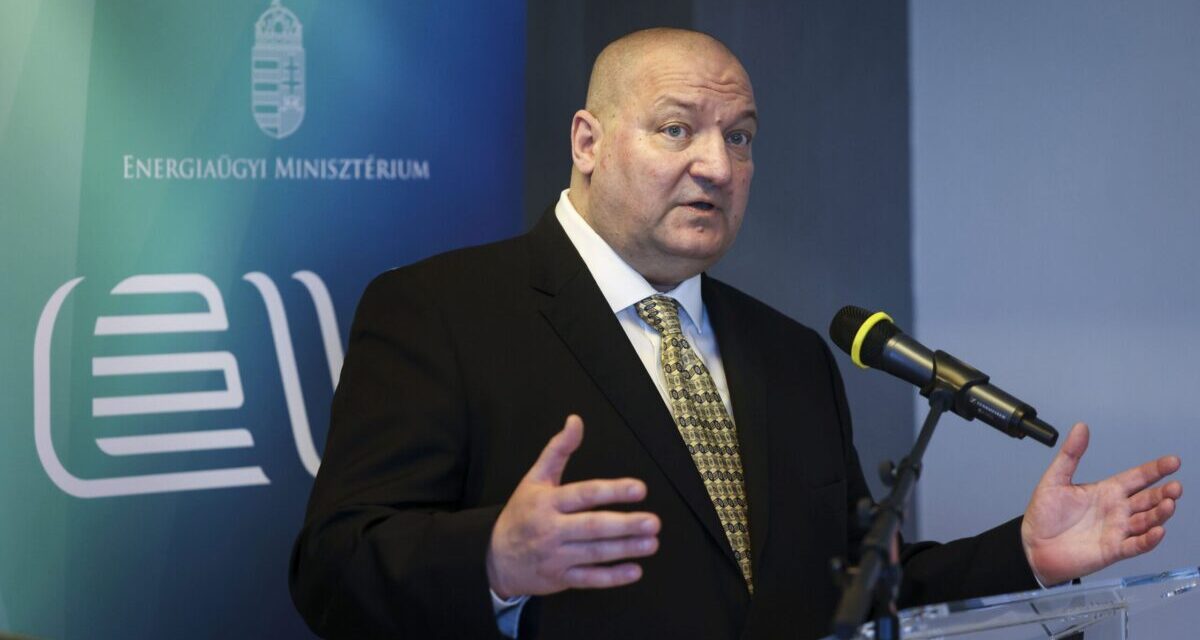The amount of gas paid for the utility year at the utility-protected price is distributed equally on the utility bills for each day of the year, making the sub-bills more predictable and households' expenses more predictable.
The amendment to the allocation of discounted natural gas volume that will come into effect from April will help consumers who pay a flat fee, the government commissioner responsible for maintaining utility reduction announced on Wednesday in Budapest.
Szilárd Németh said at a press conference that the government decree on the invoicing of customers who pay a flat-rate bill was published in the Magyar Közlöny on Wednesday and will come into effect on Thursday.
He recalled: a decade ago, the government introduced the utility reduction so that the Hungarian population, the consumers, would not be exposed to "market marauders". The goal was to prevent Hungarians from paying the highest energy prices in Europe, especially for residential natural gas, which was the highest on the continent during the left-wing governments.
He emphasized that the utility reduction was maintained during the war and inflationary period, despite the attacks of the domestic opposition and Brussels, thanks to this
today, every household pays HUF 181,000 less for gas and electricity than if market prices were included in their bills.
With the government's measures, "utility reduction and development go hand in hand", said Szilárd Németh, - thanks to this, network developments and discounts for large families and several families living together in the same household could be realized.
Today, nine out of ten consumers in Hungary receive residential natural gas and electricity at discounted, reduced utility prices - emphasized Szilárd Németh, at the same time calling it one of the most important stakes in the European Parliament elections in June, whether it will be possible to protect this.
Anita Bozóky, communications director of Magyar Electricity Works (MVM), explained that the introduction of the measure was primarily justified by the fact that among the approximately one and a half million families paying by partial billing, that is, about one hundred thousand of the consumers who pay the flat rate, faced this: their spring and summer bills were significantly higher than the previous ones. exceeding amounts were included.
This is why MVM recommended last year that they switch to a different invoicing method, and dealt with the problem by offering installment payments without separate assessment in 2023.
According to the communications director, consumers had a legitimate demand to be able to pay for the amount of gas used in a simpler, more calculable way.
He announced that a solution to this problem was found with the cooperation of the ministry and the MVM, so that after the necessary legislative changes, the distribution of discounts for consumers with even partial accounts will be modified from April.
The introduction of the measure is automatic and affects about two-thirds of MVM's customers, he added.
He pointed out that the amount of gas paid at the utility-protected price for the so-called utility year, which lasts from August to the end of July, is distributed equally on the utility bills for each day of the year, thus making the sub-bills more predictable and household expenses more predictable.
Anita Bozóky emphasized that even in the case of spring settlement bills, the discounted gas volume is distributed in this way, customers only have to pay for what they actually use, and with this, almost a hundred thousand households can avoid exceptionally high partial bills in the future.
MTI
Cover photo: Szilárd Németh, the government commissioner responsible for maintaining utility reduction, at the press conference held at the Ministry of Energy
Source: MTI/Róbert Hegedüs












